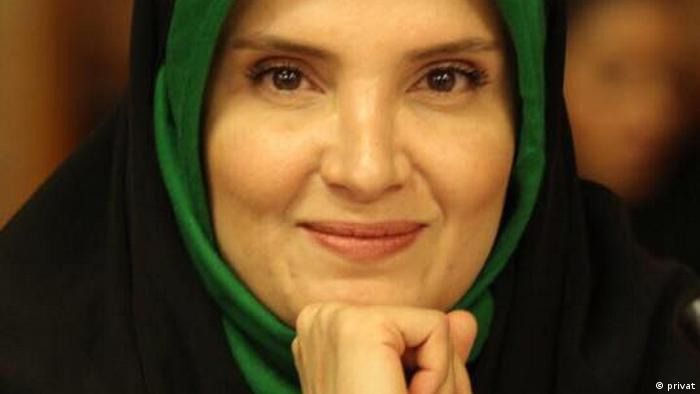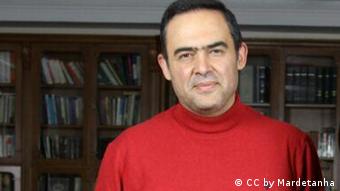The Iranian journalist Hengameh Shahidi has been sentenced to nearly 13 years in prison. Her “crime”: to make social networks a discussion of the work of the judicial heads.

“The Iranian judiciary brings its critics to Silence. Who asks, the conditions of detention of criticism or Public informed, it is dangerous in Iran.” The Iranian human rights lawyer Abdolkarim Lahidschi says in an interview with Deutsche Welle about the case of journalist and human rights activist Hengameh Schahidi (article photo).
Schahidis lawyer Mostafa Turk Hamedani indirectly confirms the assessment Lahidschis. With foreign media, he should not talk about the case, says the Tehran Prosecutor Hamedani on the phone. On Saturday, he had communicated to the state Iranian news Agency IRNA, Schahidi had been sentenced to twelve years and nine months in prison. You have made according to the judgment, the following Offences: endangering national security, Propaganda against the Islamic Regime and insulting the judiciary.
As the lawyer IRNA reported that may not Schahidi leave after serving their sentence in the country, in addition to any political Organisation and also journalistic operate. What are the concrete actions and Statements of his client, the referred to criminal offences according to the judgement of the court, did not want to run the lawyer out of “security reasons”.

Journalist and documentary-maker Hossein Dehbashi know from my own experience that Iran’s judiciary is inaccessible and impregnable.
Inviolable Justice Leadership
“It is sad. The process seems to be so tricky that not even your lawyer can details talk. Even sadder is that they will be back in a month to court. Until then, you must not dare, her mouth open,” commented Hossein Dehbashi, Journalist and documentary filmmaker, on Twitter.
For three years, interviewed Dehbashi both active and formerly influential politicians for his Oral History project on the history of the Islamic Republic of Iran, including critical questions. The red Line for him, as for most of the journalists, the judiciary is in the process. The judiciary acts independently of the government. Judiciary chief Sadegh Larijani is a religious leader directly inserted, a conservative Cleric. He is except for the religious leaders to accountable to no one.
Hengameh Schahidi had exceeded this unwritten red line, and this special status by the Minister of justice criticized. She had started in the social networks of a campaign with the Hashtag “report on nine years of leadership” and a balance sheet on Laridschanis work as judiciary chief demanded. The 43-year-old journalist wanted to know what reasons people can be detained and why are they sitting for months in solitary confinement. Shortly thereafter, she was arrested.
The heart-sick people a journalist knows about the prison. Already in 2017, sitting there for six months in solitary confinement, because of an open letter, in March of 2017, shortly before the presidential elections, social media had published. There Schahidi had-makers of the targeted suppression of critical opinion, and network activists warned.

Offended? Iran’s judiciary chief since 2009, Sadegh Larijani
Fight against powerful opponents
Later she reported that she had assistance during the detention, no access to a legal and up to twelve hours per day was being interrogated. “So the judiciary will force the prisoner to a confession, which can be later used against you,” explains lawyer Abdolkarim Lahidschi. “Having regard to the allegation of threat to national security, the authorities can treat the prisoners as he sees fit.”
Shortly before the statement of the lawyer of Schahidi about their condemnation of her family had been notified via social media that Schahidi has been sitting for 158 days in solitary confinement, without contact with the outside world. “That just shows you how vindictive the judiciary acts”, has been added to this message as a comment.
Schahidi had started their campaign against Larijani, knowing that the Iranian judiciary has long been a thorn in the eye. In the presidential campaign of 2009, she was a consultant of the candidate, Mehdi Karrubi, the defeated at the time, Mahmoud Ahmadinejad. Then, due to apparent massive electoral fraud to the protests of the “green movement”, the conservative Establishment is challenged. Schahidi has since been taken on several occasions, Karrubi is since 2011 under house arrest.

